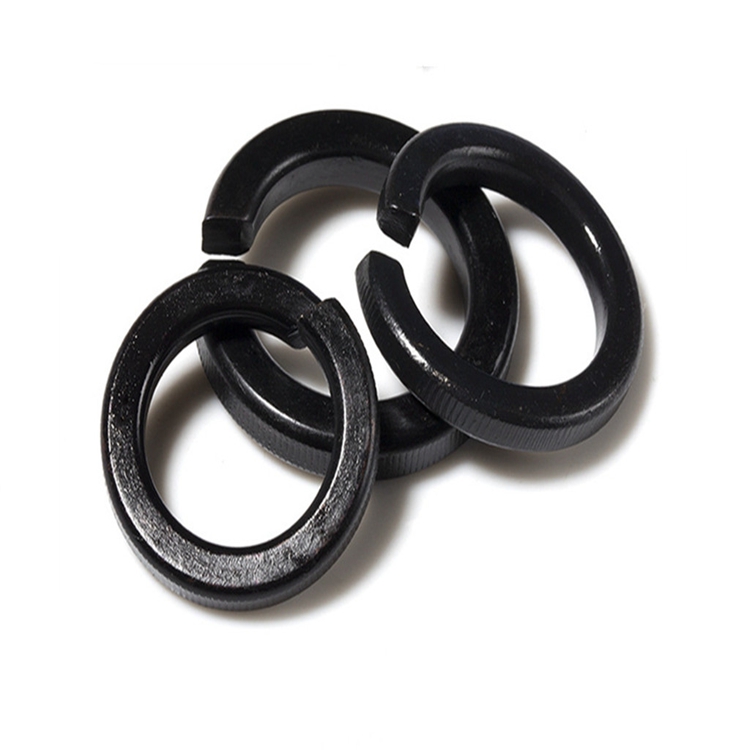double threaded stud bolt suppliers
Nov . 22, 2024 21:16 Back to list
double threaded stud bolt suppliers
Understanding the Market for Double Threaded Stud Bolt Suppliers
In the vast world of manufacturing and construction, the significance of fasteners cannot be overstated. Among these crucial components, double threaded stud bolts play an essential role in providing stability and strength to various assemblies. Consequently, the suppliers of these specialized fasteners are in high demand. This article delves into what double threaded stud bolts are, their applications, and key considerations when choosing a supplier.
What is a Double Threaded Stud Bolt?
A double threaded stud bolt is a type of fastener characterized by threads on both ends, with a smooth shank in the middle. The threads can be of different diameters, allowing for versatility in applications. This design facilitates the joining of two components, offering mechanical strength and stability. Double threaded stud bolts are often utilized in various industries, including automotive, construction, and manufacturing.
Applications of Double Threaded Stud Bolts
Double threaded stud bolts are versatile and can be found in numerous applications. In the automotive industry, they are employed to secure components such as exhaust systems, engine mounts, and chassis frames. In construction, these bolts are often used to anchor beams, secure structural frameworks, and fasten heavy machinery to their bases. Additionally, in the manufacturing sector, they can be found in conveyor systems, machinery, and assembly lines. Their ability to withstand high levels of stress makes them suitable for applications that demand reliability and safety.
Importance of Choosing the Right Supplier
When it comes to selecting a double threaded stud bolt supplier, several factors should be taken into consideration to ensure that the best fasteners are sourced for specific applications.
1. Quality Assurance The first and foremost consideration should be the quality of the bolts. Suppliers should provide bolts that meet international standards, such as ASTM or ISO certifications. High-quality bolts ensure safety, durability, and performance in their respective applications.
double threaded stud bolt suppliers

2. Material Variety Different applications may require different materials, such as stainless steel, carbon steel, or alloy steel. A reputable supplier should offer a range of materials to cater to diverse engineering needs.
3. Customization Options Often, projects may require customized solutions. A good supplier can provide tailored lengths, diameters, and thread types, ensuring that the specific needs of a project are met.
4. Reputation and Experience It is crucial to consider the supplier’s reputation in the market. Companies with extensive experience in the industry often demonstrate reliability and quality service. Checking reviews and testimonials can provide insights into the customer service and performance of the supplier.
5. Pricing and Availability While quality should not be compromised, it is also essential to consider the pricing. Comparing different suppliers can help in finding competitive rates without sacrificing quality. Additionally, suppliers should have adequate stock or the ability to fulfill large orders in a timely manner.
6. Technical Support A knowledgeable supplier will be able to provide technical assistance regarding the correct use of double threaded stud bolts. This can be invaluable for engineers and procurement teams when making informed decisions.
The Future of Double Threaded Stud Bolt Supply
As industries continue to evolve, the demand for double threaded stud bolts is expected to grow, driven by advancements in manufacturing technologies and increasing construction activities worldwide. Suppliers who adapt to these changes, focusing on innovation and customer needs, are likely to thrive. Additionally, the rising emphasis on sustainable practices may lead to the development of eco-friendly materials and production processes in the fastener industry.
Conclusion
The role of double threaded stud bolts in various applications highlights the importance of choosing the right supplier. Quality, material options, customization, reputation, pricing, and technical support are key factors that should guide procurement decisions. By understanding these elements, businesses can ensure they have the right fasteners to achieve their operational goals successfully. As the market continues to grow and evolve, staying informed about suppliers and industry trends will remain crucial for success in various sectors.
Latest news
-
High-Quality Panel Stud Bolt Reliable Panel Stud Bolt Factory & Suppliers
NewsJul.08,2025
-
High-Precision Fine Thread Locknuts Manufacturer & Supplier Custom Solutions
NewsJul.08,2025
-
PH Imperial Stud Bolt – High Strength Fasteners from Leading Supplier & Factory
NewsJul.07,2025
-
High-Quality Allen Wrench Bolts Leading Factory, Company & Suppliers
NewsJul.07,2025
-
Wholesale Ball Stud Bolt - High Quality Supplier & Factory Price Reliable Wholesale Ball Stud Bolt Company
NewsJul.06,2025
-
High-Strength Alloy Bolts Manufacturer & Supplier Quality Alloy Fasteners Factory
NewsJul.06,2025
